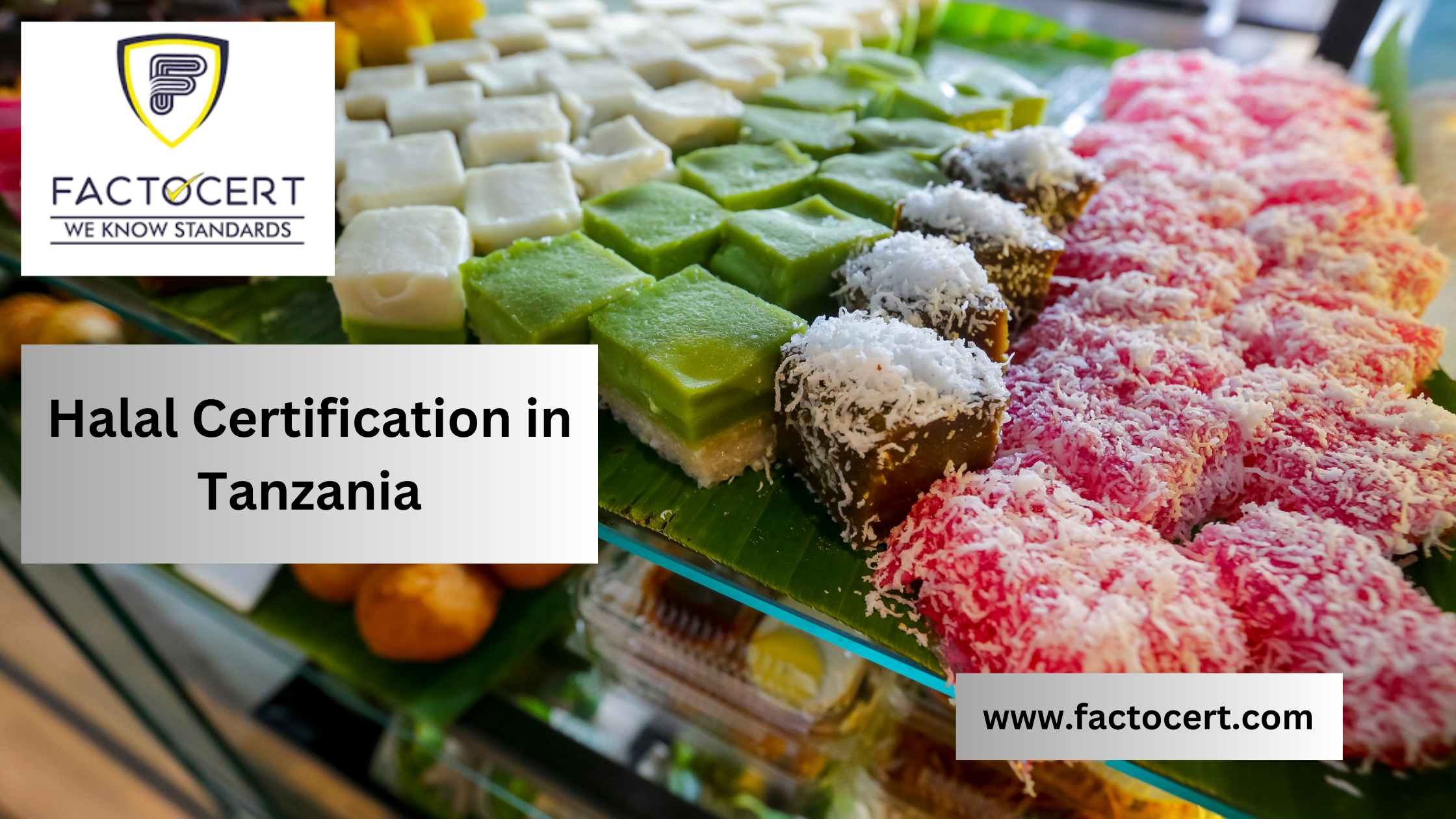Tanzania's halal certification process

How to Obtain Halal Certification in Tanzania?
Halal Certification in Tanzania. Food and food-related products are the main commodities that acquire the halal certification necessary in Islamic countries. Halal is a term used in the Qur'an to denote "permitted" or "lawful." Thus, the term "Halal" designates food and other items Muslims may use and consume following Shariah, the Islamic law. Halal guarantees that the food people eat regularly is wholesome, hygienic, and safe for their health.
Halal promotes cleanliness for consumer use. A food item is safe to eat if it has halal certification. As consumer knowledge of Halal cuisine rises, more businesses seek Halal Certification for their products, sites, restaurants, etc. This article discusses the procedure for obtaining Halal Certification in Tanzania.
Businesses looking for Halal Certification in Tanzania are welcome to submit applications to any certification bodies mentioned above. When awarding Halal Certification, a recognized authority analyzes the business and ensures that it: Is neither made up of nor contains any part of an animal that Shariah bans a Muslim from eating or that was not killed following Shariah.
Not made, created, or prepared by an impure tool, as Shariah defines that term.
Types of Halal Certification:
In Tanzania, halal certification differs from company to company. Halal Certification is applied to restaurants, hotels, slaughterhouses, packaging, and labelling materials to ensure that they are appropriate for Muslim customers to visit or use. But Halal certification is not limited to food production. Additionally, non-alcoholic beverages, raw materials used in food processing, medicines, health care products, traditional herbal products, cosmetics, personal care products, cleaning supplies, and everyday consumables can all be given a Halal Certificate.
Receive Halal Certification from Halal Certification Bodies as a result, frequently under the following plans:
System for Food, Beverage, and Catering, including the abattoir system, the industrial scheme, the restaurant scheme, the product endorsement scheme, and the warehouse or storage scheme.
Tanzania's Halal Certification Process:
To become certified as Halal, the business must apply to one of the Certification Bodies. The company must now meet all Halal requirements, including personnel, procedures, and certification.
Auditors (often one Shariah auditor and one technical auditor) will visit the company for an inspection after validating the application details.
The auditors will examine the following regions' fitness for Halal Certification:
Documentation.
Distribution, handling, and product processing.
Preserving, showing off, and serving goods.
Clean surroundings and secure meals.
The general features of the property's machinery, tools, and equipment.
Packing and labelling.
During an audit, the company may be asked for a Halal certificate of analysis, specified components, and requirements for accepting raw materials.
Following the audit, a report on the audit will be written and signed by both parties.
Certification: A Technical Committee will examine the business's supporting paperwork and the auditors' report when the Halal audit is finished. The Halal Certification Body issues the Halal Certificate if the audit report is favourable and the company and its products meet the requirements for Halal certification.
Benefits of Halal Certification:
Halal certification has many advantages and could give a business an edge.
The following are some of the most significant advantages a company can obtain from halal certification:
Make the business or product marketable to a 2 billion+ global audience.
Because of the adoption of the Halal symbol, products are more marketable in Muslim countries.
Boost the product's, food's, or hygiene system's quality.
Improve the calibre of the meal or product.
Why do you need Factocert's Tanzanian Halal Certification?
Factocert is a credible Halal certification agency well-known internationally, although being more popular in the Gulf countries. We are committed to giving the best advice, providing Halal Compliance Certification, creating independent audits and monitoring systems, and marketing extra goods and services.
Contact www.factocert.com without a doubt for additional information; our trained professionals will undoubtedly assist you in obtaining Halal Certification in Tanzania.
- Art
- Causes
- Crafts
- Dance
- Drinks
- Film
- Fitness
- Food
- الألعاب
- Gardening
- Health
- الرئيسية
- Literature
- Music
- Networking
- أخرى
- Party
- Religion
- Shopping
- Sports
- Theater
- Wellness
- IT, Cloud, Software and Technology


